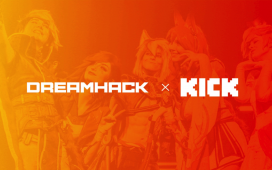- Electronic Arts (EA) reported net revenue of $1.24B USD for the fourth fiscal quarter ending March 31, 2019, a decrease of 22% from $1.58B in the same quarter of FY 2018.
- For the fiscal year 2019, GAAP net revenue was $4.95B, compared to $5.15B for FY 2018.
- EA recognized esports and competitive game modes as continued drivers of engagement, citing brand partners, network partnerships, and its own broadcast capabilities.
Game publisher Electronic Arts, Inc. (EA) posted total net revenue of $1.24B USD for the fiscal quarter ending March 31, 2019. Full-year GAAP net revenue was $4.95B, a drop of 3.9% from $5.15B in FY 2018.
At an operating margin of 20.12% EA generated an operating income of $996M for FY 2019 and a net income of $1.02B, a decrease of 2.3% compared to $1.04B for FY 2018. Calculated in earnings per share (EPS) that is $3.36 for the full FY 2018 and $0.70 for Q4 of FY 2019.
In the trailing 12 months, 75% of total net bookings—products and services plus mobile platform fees—originated from digital sales, at $3.72B. This is an increase of 5% YoY.
Console net revenue coming from platforms including Microsoft’s Xbox One, Sony’s PlayStation 4, and Nintendo’s Switch accounted for 66.7% of the total revenue and lowered 31% from $1.2B in Q4 FY 2018 to $826M in Q4 FY 2019. PC contributed 17.5% and mobile brought in 15.3% of the total net revenue.
Overall, EA’s player base grew to more than 500M active player accounts (APAs) in FY 2019. In last year’s earnings call EA only disclosed player bases for specific franchises: EA’s sports franchises accounted for more than 90M APAs on current generation consoles with “tens of millions more across mobile and PC,” its Battlefield ecosystem had more than 54M APAs, and its The Sims community counting more than 80M APAs, while numbers for the remaining IPs such as Star Wars not being provided.
The rising active user base was driven by engagement in EA’s top franchises and live services on major platforms, Electronic Arts CEO Andrew Wilson told investors during the earnings call.
He also credited the launch of Apex Legends in February, noting that 30% of its player base were new to the publisher. EA is actively negotiating Apex Legends for release in China, as well as on mobile devices, Wilson added. They are self-publishing the title in Korea.
Conversely, the publisher’s action role-playing game Anthem “underperformed” EA’s expectations when it launched in February.
Related Article: EA Competitive Gaming SVP on Creating an Esports Ecosystem for FIFA
EA did not break down sales figures by title or IP, but Wilson placed emphasis on the publisher’s commitment to esports initiatives for FIFA ![]()
![]()
![]()
Competitive modes of the FIFA franchise saw engagement double YoY. EA’s FIFA Global Series experienced over 60% growth in total unique views. The company observed “similar trends” in the Madden NFL franchise. Wilson said that the Madden Ultimate Team business grew YoY, with esports driving excitement and viewership for the franchise.
Wilson outlined plans to reach “broader audiences” through esports. In December, EA built a dedicated esports broadcast studio in its Redwood Shores, California, headquarters. The company will continue to partner with networks like ESPN and Twitch ![]()
“Combined with new sponsorships and great brand partners that are connecting us to more fans around the world, our opportunity in the global esports movement continues to grow,” said Wilson.
In December, EA hired Paul Johnson as its new head of commercialization for esports.
Johnson now heads the publisher’s global push to grow and enhance out-of-game revenue related to the publisher’s esports offerings This includes sponsorships, advertising, media rights, licensing fees, and merchandising.
Tobias Seck contributed to this article.















